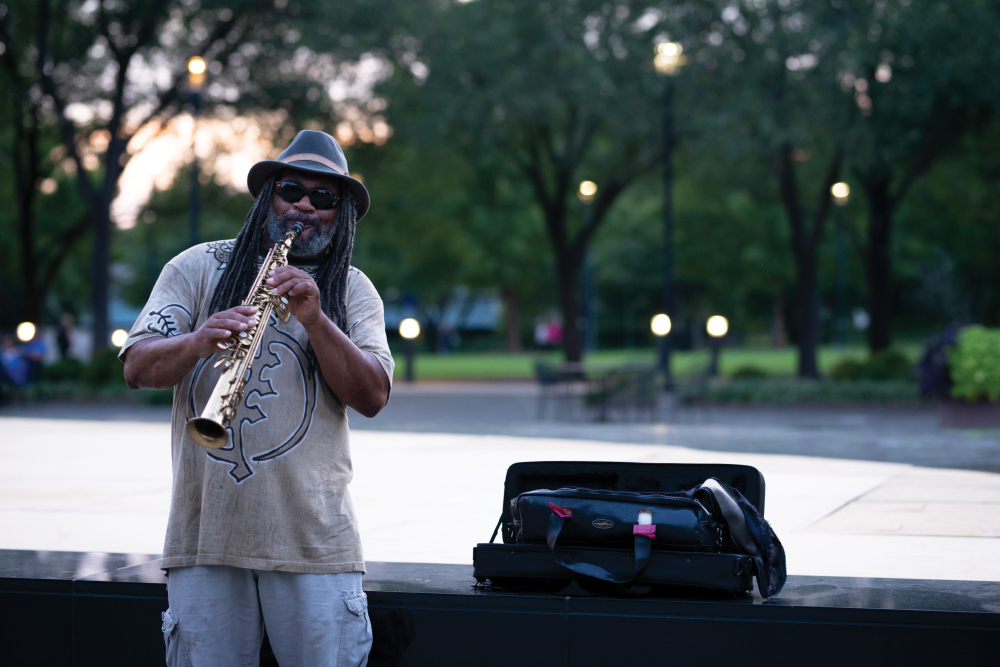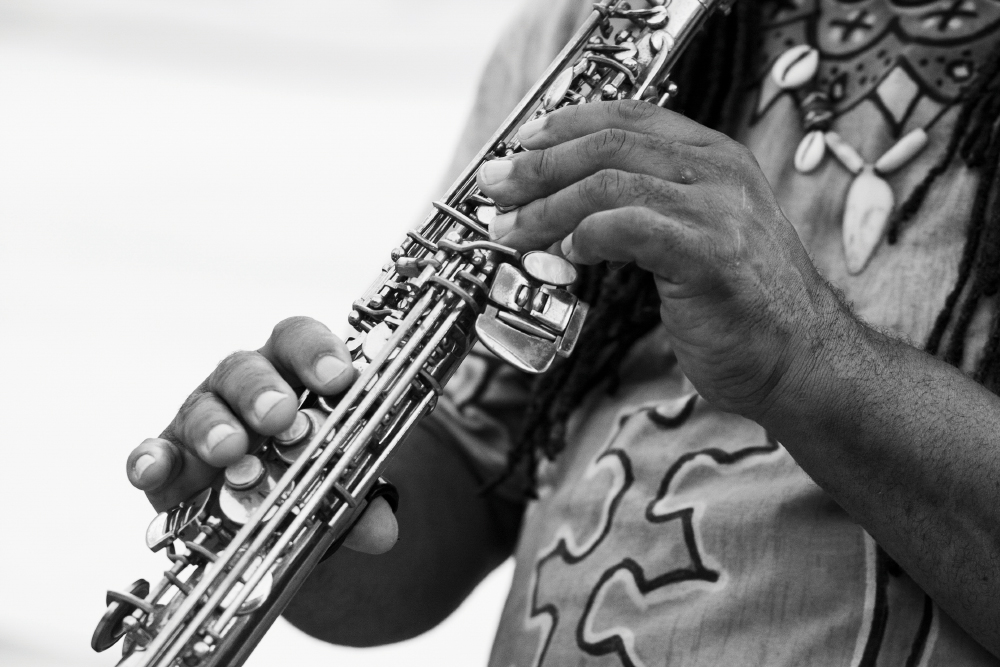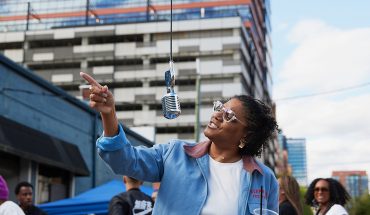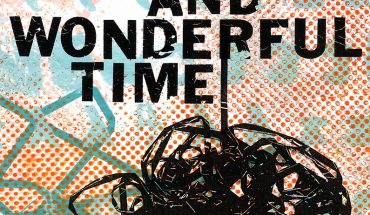This saxophonist has played the Apollo — but feels most connected to his listeners when he plays on Raleigh sidewalks.
Words and photography by Tyler Cunningham

“It’s on the street where I feel like I’m actually living,” says Freddy Greene. “I’m not boxed in at all.” You’ve probably encountered Greene on Fayetteville Street or at his favorite Raleigh perch, in front of the Memorial Auditorium as a performance lets out. The 63-year-old harvester of sounds leans into a relaxed boldness with piercing hazel eyes, often hidden behind his signature shades, and locs falling well below his shoulders.
Nicknamed the “Street Genie” for his ability to make the melodies of his beloved saxophone dance and bend, some say Greene is Raleigh’s longest-running street musician. While Greene has played with the likes of gospel greats Shirley Caesar and Percy Sledge — and even graced the stage of Harlem’s legendary Apollo Theater twice — street playing is his sacred space. Here, he has found a raw and powerful connection to his audience for more than four decades. He is drawn to its simplicity: the direct line between musician and listener, where he can see and feel how his music lands.
Hailing from humble roots in Franklinton, Greene was born into a life of music. His first home had once been a neighborhood juke joint known as the Chicken Shack, where sharecroppers and the agrarian working class would gather to unwind and reconnect through music. Those storied walls were the foundation, and music was woven into the fabric of everyday life. If Greene wasn’t listening to his mother sing or his uncle play the guitar, he was running down to his grandma’s house to play her piano. Music, he discovered, was not only a form of self-expression, but a way to bear witness to the world around him.
After high school, Greene studied music at Saint Augustine’s University in Raleigh and then North Carolina Central University in Durham. “I had to get serious, to play catch-up,” Greene shares, reflecting on the talent surrounding him, “but first I had to get the girls out of my head!” Greene followed in the footsteps of one of his idols, B.B. King, and took his velvety soprano sax to the street. There, he found refuge from the daily pressures of tests and school loans and the future that he would need to create for himself. In the movement and pace of the people, Greene could let the world melt away while he painted the air with his languid, long notes.
Perhaps the greatest influence on Greene’s life was his mother, Flora, a talented artist and seasoned storyteller. She told a tale throughout his childhood about a young boy who strayed from the right path and was saved from danger by a street musician and his magical horn. Flora’s story wrapped Greene in a blanket of comfort and hope as he left college and struggled with homelessness in his 20s. “When I look back, I think that story was telling me how to save myself with my horn,” says Greene. “So I would just play. I would practice and practice, for hours and hours, eight, 10 hours a day. I dropped out of society.” But Greene never forgot his mother’s story, and used her words to fuel him as he fought his way through those dark years.
On one of those long days in the late 1990s, Greene was playing on the corner of Historic City Market when chef Harvey Yancy was walking to his job at a nearby restaurant. Yancy heard Greene before he saw him. “I was like, Wow, man, this cat is really playing!” Yancy recalls. “The world was walking by Freddy, but they didn’t see who he really was.”
Yancy didn’t hesitate. He told Greene that as soon as he got his own place, Greene was going to play there. Within a year, Yancy opened his Cajun restaurant and jazz club, Yancy’s, and Greene was its first entertainer. “Freddy was the house band!” Yancy says. The gig was Greene’s first, and soon he was forming his own trios and quartets and playing venues throughout the state.
This is when Greene met Stefan Youngblood, founder of When Grace Happens, a Raleigh nonprofit that supports the homeless and under-resourced. Youngblood, a powerful vocalist and pianist, invited Greene to collaborate for an upcoming event. Several of the musicians were homeless, a reality that had been Greene’s just a few years before.

This was a full-circle moment for Greene, supporting others who were on a journey with so many parallels to his own. It allowed him to share his riffs and phrases with an intimacy and vulnerability that served as a magnet to his audience. “Freddy’s a sociologist playing the sax; he studies people while we study him,” says Youngblood. “He’s more than a musician — Freddy is deeply spiritual with a compassionate heart. A listener. Freddy’s the real deal.”
As Greene’s audience has widened, he remains as connected to the path behind him as he is focused on the one ahead. “I wouldn’t change anything,” he says. “I’ve learned that it doesn’t matter what anyone else says about you. It’s what you think about yourself.”
Those words are particularly poignant when paired with the title track from his latest album, Ain’t I Somebody? With a tension to his refrains, Greene unfolds this rhythmic and reflective musical narrative about the inherent value of all people.
“Freddy plays from his soul and he’s playing because he’s trying to reach another soul,” says Yancy.
So the next time you’re meandering the streets of downtown Raleigh, pause and listen for the sound of magic happening. And when Greene’s musical storytelling draws you in, let the notes wash over you and carry you to a peaceful place of belonging.



